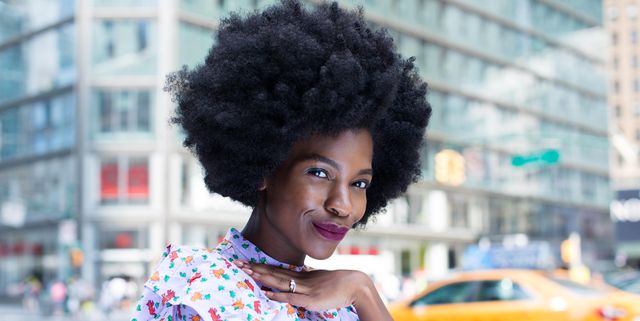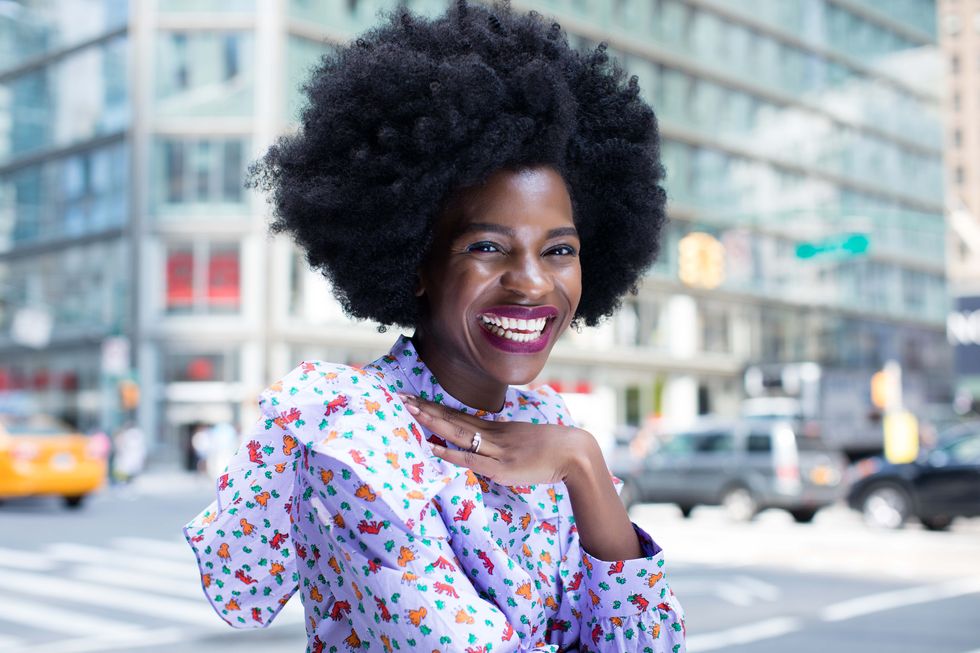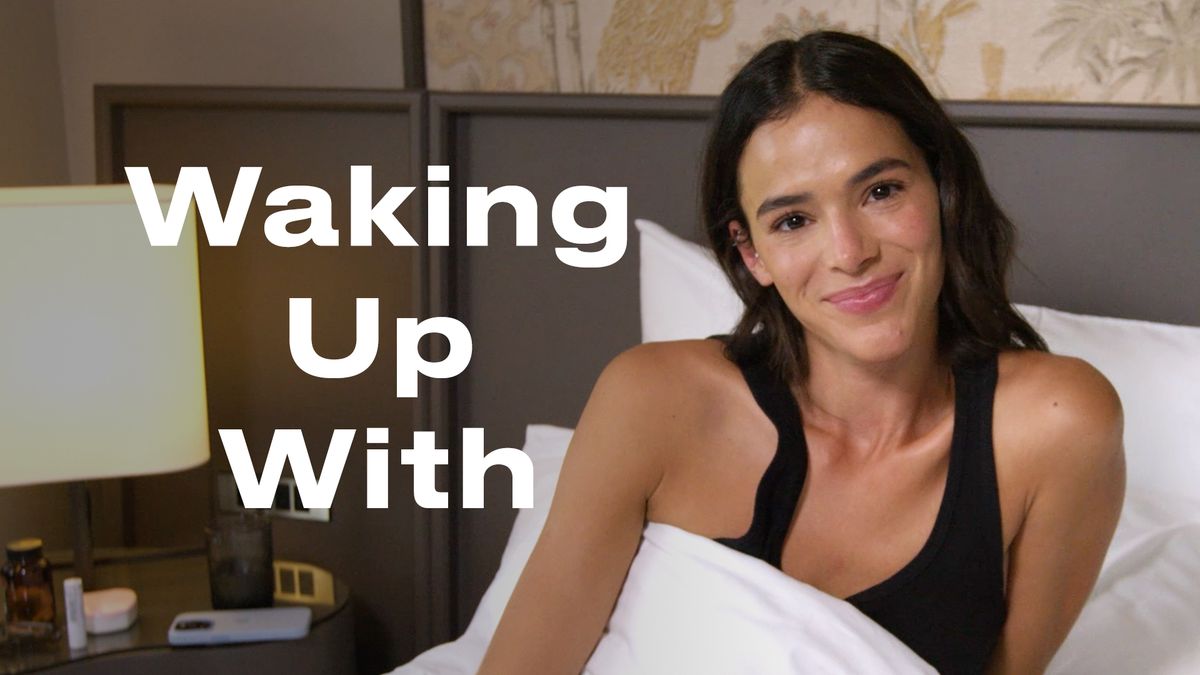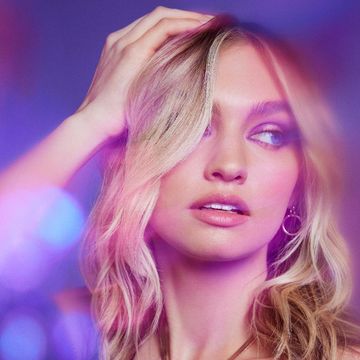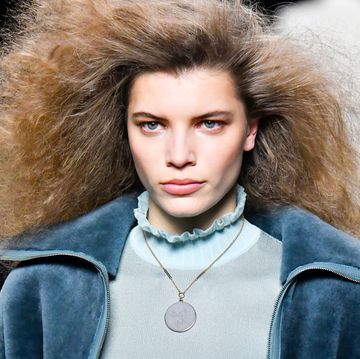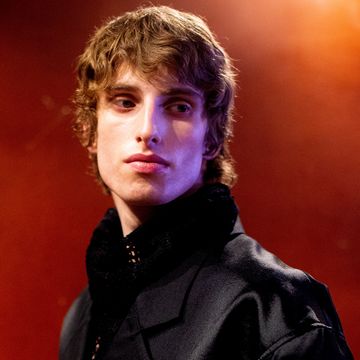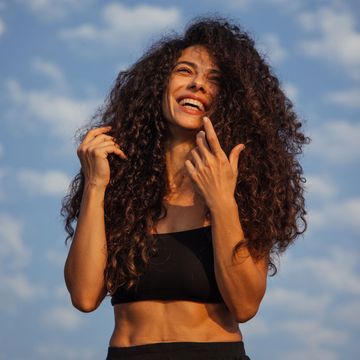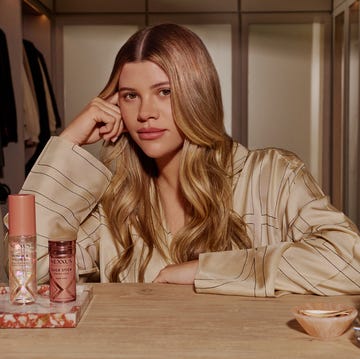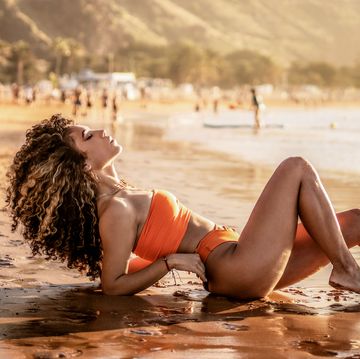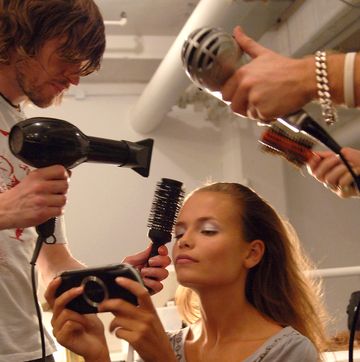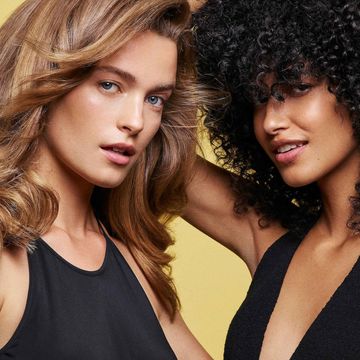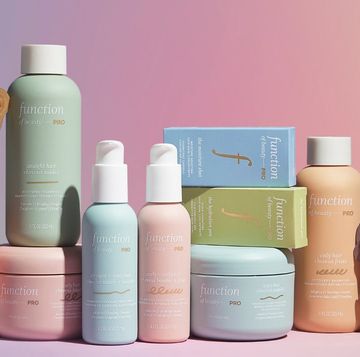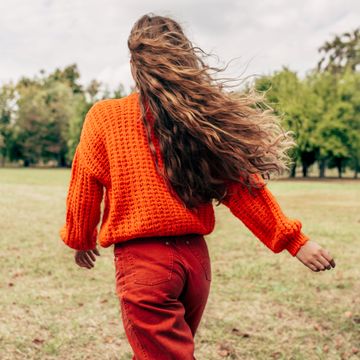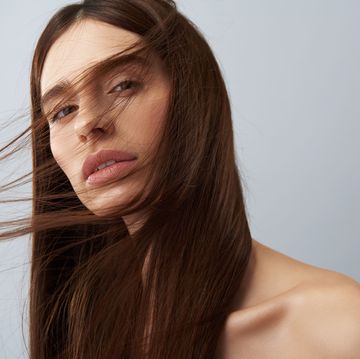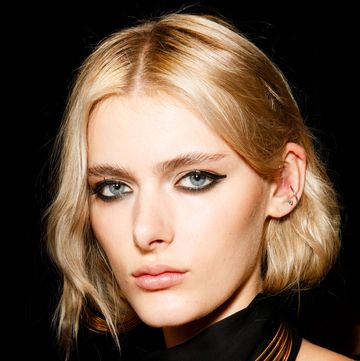For many black women, there's a moment in their life when, for one reason or another whatever it is they are doing with their hair feels like its become too much. For some, it's a series of moments. For France born, London-based Frédérique Harrel, that moment was in college, during a study abroad program in China. Atop her head: A $500 wig. Dripping down the side of her face: Glue in an effort to help the heavy, pricey piece stay put. “Try explaining that to all the white people in the room,” she says.
Harrel made up an excuse—"allergic reaction!"—but the memory stuck with her. From then on, she stopped wearing wigs, namely because it's difficult to install them on yourself, and expensive and time-consuming to have lace-front models woven on by a stylist. She wore her hair natural, augmenting what she had with wefts of extensions. For a time, that worked. Then she saw the BBC 3 documentary Whose Hair It Is Anyway?, by British singer Jameila, which tracks the human hair trade and exposes its pitfalls. In India and Moscow in particular, women are forced to donate their hair for financial or religious reasons, only to struggle to integrate back into their community without it.
That was the end of human hair extensions for Harrel. Going cold turkey wasn’t easy, though, especially since the straighter, shinier synthetic hair on the market didn't mimic the texture or finish of black hair. When she lost her job as a personal stylist for ASOS in 2015, she started SHE Unleashed, an online video series and workshop program that focused on self-exploration, confidence, and self-love. All the while, she was thinking about hair, meeting with distributors she'd met on London's High Street about improving what was available.
Her video mentoring, Instagram presence, and blog turned out to be good for the nascent hair business, too. People would watch videos then turn around and ask, “Freddie, what's your hair routine?” A year later, Big Hair No Care, a range of ethical afro hair extensions, was born.
The line offers clip-in extensions that follow the super tight, 3C-4C curl pattern of black hair. Zero Drama Queen clip-ins mirror natural hair texture—they aren't coated like most synthetics, but add volume to afros. No Stress Princess clip-ins match a traditional black blowout with length, while retaining the volume. Both come in bundles of 10 that cost $59 to $69 depending on length (14", 16", 18", or 20") and color (black, brown, or ombré). While the synthetic bundles can't be dyed, they can be washed and brushed to last six to 10 weeks.
Big Hair No Care’s clip-ins are made to match your texture, Harrel says. “You don’t need to wash, condition, or detangle. It's for people who are poor on time, poor on skills, and poor in money,” she adds with a smile, although she's not joking. Yes, Big Hair No Care is a hair business, but it's also a self-confidence business, a self-love business, and a business by and for black women.
Harrel is quick to stress that she wants to help black women lead better lives, and, forgive the pun, believes hair is at the root of it all. She doesn’t want to just sell better natural hair to black women. She wants to change the entire culture around black women’s relationship with their hair. “Everyone's talking about how mental health is super important,” she says. "For some people, it's too expensive to spend $70 on an hour with a therapist, but they'll spend $1,000 on a wig." Harrel's humble suggestions: Buy cheaper hair, feel better about yourself, and save your money, —for therapy, or otherwise.
Although Big Hair No Care is based in the UK, U.S. customers account for 30 percent of its sales. For Harrel, that's a promising number that could lead to expansion across the pond some day. (Harrel has already launched a successful Big Hair No Care pop-up in Brooklyn.)
The last question I asked Harell is what’s her biggest, wildest dream for Big Hair No Care. “I really want Big Hair No Care to be stocked by retailers,” she says. (Right now, you can only buy Harrel's hair on the brand's website.) “I really want my hair to be on the High Street.” No mention about getting rich, about seeing a celebrity in her pieces, and not a peep about an increased Instagram following. In a world where it can be nearly impossible for black women to find products that enhance their natural hair, all Harrel wants is for her products, products for black women, to be stocked in the drug store, alongside products for everyone else.
